The 40 Counterculture Writers Who Most Shaped Psychedelic Zionism, Part II
Continuing now with 21-40, which span from 2009 to 2024.
For those just joining us, please be sure and check out Part I in this list of intellectual influences, professional mentors, creative inspirations, spiritual masters, and dear friends.
That list from last month ran in time from 1994-2010, and this one will continue from 2010 through 2024:
OK, welcome back. Now, to continue with the story I will attempt to be as brief as possible with each person rather than make this the epic which it would otherwise become. Apologies in advance: I am likely to fail.
First, just as the last list concluded with three men who strongly influenced my shift to libertarian-conservative professional activism during 2008-2012—and who I still appreciate—this list will begin with three unique women who also shaped my views during this period, and whom I likewise continue to value to varying degrees.
They are each very different, save for their shared ability to infuriate people with their writing.
21. Camille Paglia
One of the central ideas that became very important to me during this period in my life, and remains so today, is that today’s cultures echo the cultures, religions, and civilizations of the ancient world. Paglia explicates this with such mastery that it's impossible to look away. What were ancient pagan religious practices and tendencies thousands of years ago, evolved into art, which became popular culture.
The “idols” of mass media, from movie stars to politicians to “influencers” on social media, belong fundamentally to the same phenomenon that can be traced back to ancient times: the cult of personality. This results in idolatry of the big man, big woman, or both.
And so I see our dominant political cultures and religions, and popular cultures in America essentially as forms of paganism. This is a religious/cultural/civilizational context that can be studied through the broad swath of human history.
As one based in Judeo-Christian, biblical cultural principles, I tend to try to keep my distance from these neo-pagan idolatries that enthrall most of the population and once imprisoned me, too.
Paglia is also a dazzling prose stylist. Her work is filled with compelling ideas on other subjects too, particularly feminism, postmodernism, art, poetry, and much more. Read everything she writes.
Key books to read: Sexual Personae, Glittering Images, Provocations
22. Ann Coulter
OK, I’m sure that “Queen Ann,” as I used to refer to her during my conservative blogging period, is one of the last people you’d expect on a list of people that I’m largely celebrating and enshrining as important influences.
I won’t get into my personal interactions with the Queen, of which there have been a couple, including in person. I’ve seen her give three of four speeches at conservative events.
Nor will I get into what she argues in her various books, why I became a fan for many years, why I stopped liking her after reading her 2015 book Adios, America: The Left’s Plan to Turn Our Country into a Third World Hellhole, why her approach/persona has become irrelevant and obsolete, and my dissatisfaction with her political shifts and more recent emphases.
Those can wait for another day, or perhaps I’ll just hold back. An author being kind to me, as Coulter was, goes a long way in holding back my fierce polemical denouncements when they would otherwise deserve it.
Here’s what I came to understand about Queen Ann after reading so many of her books and columns - but particularly from seeing her in person:
She’s really a stand-up comedian and she’s just been posing as a pundit. She mostly just makes jokes and understands which buttons to push to outrage the centrist and left-wing media complexes. And this approach generally works! Be entertaining and funny and likable, and you can get away with making some truly outrageous jokes. Then you can weasel in a few provocative points that you're actually serious about.
This will piss off a whole lot of people, but I’m going to say it: Ann Coulter is the fuckin’ George Carlin of her generation.
And so I still maintain that sensibility, as the previous people named on this list represent, too. Say it with art and entertainment, and you can get away with some of the most subversive ideas beyond imagination.
Key books to read: don’t bother.
23. Ayaan Hirsi Ali
Just as Ann Coulter was the queen writer-activist of the conservative movement at the time, Ayaan Hirsi Ali filled a similar queen writer-activist role for the particular subset of the conservative movement where I found myself: the counter-Islamist movement.
Ali is one of the world’s most prominent ex-Muslims, and thus one of the most prominent opponents of Islamist ideology and the political movements and terrorist groups inspired by it. At the time that I joined this movement, I had entered its most “hardcore” wing - those who argued that terrorism and malevolence came from Islam itself, and that efforts for reform were therefore naive and futile. Ali also held this position then, and publicly aligned with the “New Atheist” movement led by Sam Harris, Richard Dawkins, and Christopher Hitchens, who supported her rise. Atheists of this variety tend to hold the view that Islam itself is terrible and irrational, thus, like Christianity, the misery that often arises in such societies can be blamed on the religion itself.
But over the years, my views on this softened as I learned more. I came to shift from the anti-Islam position to the counter-Islamism position, coming to regard not Islam, the whole, as the problem, but rather Islamism, the political ideology, as created by Hassan al-Banna in the 1920s. The Muslim Brotherhood and groups which share its ideology have been the problem, not the majority of Muslims.
As I came to start shifting in this way (under the influence of the next person on this list), Ali had begun the same shift too. In 2015, her book Heretic: Why Islam Needs a Reformation Now came out and it finally persuaded me that Islam was not doomed to perpetually fuel oppression; that modern forms of Islam were not the exception but could be the rule.
This shift in views around that time would continue primarily because of the next amazing author on this list.
And I will just note one last thing on Ali: as with Coulter, I have been unhappy too with her recent more right-ward shifts. Ali used to be a more heterodox figure who could speak to broader mainstream audiences with counter-Islamist ideas, rather than just preaching to a right-wing choir. She now usually sounds more like an “anti-woke” right-wing culture warrior who has recently converted to a form of Christianity which I regarded as destructive. See this post here:
Key book to read: Heretic: Why Islam Needs a Reformation Now
24. Barry Rubin (1950-2014)
In this essay that I published on December 31, 2022 in Part I of my “Antisemitism and Culture” series I named Barry Rubin as one of the primary reasons I had come to focus on foreign policy and Middle East issues. I’ll just reprint the part I wrote about him then, because I’d largely say the same thing today:
Losing My Friend and Mentor Barry Rubin in 2014
While I was editing NRB and discovering Israel advocacy, one author beyond all others presented the most enlightening and amazing writing on the Middle East: Barry Rubin, a scholar and blogger who had written or edited dozens of books. The man was amazingly prolific, writing so many blogs reporting on the controversies across the Middle East that it was nigh-impossible to keep up. And he completely transformed how I understood the Middle East. He was also a key influence inspiring me to part ways with NRB and FrontPageMag and join him at PJ Media where I became his editor, including editing his final blog posts before he died. You can read his archive here. The most important thing that I learned from Barry was the incredible complexity of the Middle East. He taught me to see each country in the Middle East as its own phenomenon and the broad variety of Islamist groups fighting in the region. Working with him I evolved so much in my understanding, coming to grasp the Middle East more as a scholar instead of an over-the-top polemicist blogger. He died from cancer in 2014 and I miss him so much. After he died even Benjamin Netanyahu took notice, writing a letter of condolence.
Key books to read: The Muslim Brotherhood, Israel: An Introduction, and Nazis, Islamists, and the Making of the Modern Middle East with Wolfgang G. Schwanitz
25. Lt. Gen Ion Mihai Pacepa (1928-2021, from Covid)
Perhaps the most unique and extraordinary writer I got to work with during my years as an editor at PJ Media (2011-2015) was Lt. Gen. Ion Mihai Pacepa (who went by Mike in his emails). He was the highest-ranking defector from the Soviet bloc, having worked as the spymaster for Romanian Communist dictator Nicolae Ceaușescu. Even decades later, he still lived in hiding out of legitimate fear of assassination.
His memoir Red Horizons had been evidence used in Ceaușescu’s trial, which led to leader’s execution. How fucking badass is that? A book you write to lead to the execution of your former boss?
At the time that I worked with him, he was promoting a book about how Soviet intelligence agencies invested a ton of time and resources into planting disinformation throughout the West in all sorts of forms, going after all kinds of different targets. Much of this included to obscure their role in the assassination of JFK. Here’s another post I wrote awhile back, on Dec. 22, 2022, early on in the first antisemitism series:
Thus, working with Pacepa, I’ve gained a perspective keeping an eye open for various narratives and culture that may have been planted by one country’s intelligence agency or another. I get the impression that they often try to target or influence one subculture or counterculture. They also often spread a lot of antisemitism and target Israel. It is very important for anyone writing about media or culture to be cognizant of this hidden influence on culture and politics, even religion too.
Oh, and his explanation for how the JFK assassination happened is the most believable and sensible you’ll likely ever encounter. If it didn’t result in two men’s deaths it would almost be comical how it all went down.
All of his books to read: Red Horizons, Programmed to Kill, Disinformation, Operation Dragon
26. James Wasserman (1948-2020)
I wrote fairly deeply about Wasserman’s many influences on me in point three of this post’s predecessor:
To summarize quickly, his books ultimately demonstrate to me the compatibility of a mystical-occult religious practice with a hawkish libertarian-conservative foreign policy. Meeting Jim and reading most of his books—collecting most of them too—confirmed for me that there were other “counterculture conservatives” out there who were doing exactly what I was advocating for then and now advocate a different form of with Psychedelic Zionism.
Key books to read: The Templars and the Assassins: The Militia of Heaven, The Secrets of Masonic Washington, The Mystery Traditions: Secret Symbols and Sacred Art, The Slaves Shall Serve: Meditations on Liberty, The Temple of Solomon: From Ancient Israel to Secret Societies, In the Center of the Fire: A Memoir of the Occult, The Egyptian Book of the Dead: The Book of Going Forth by Day (editor)
27. and 28. Rabbi Jonathan Sacks (1948-2020) and Maimonides (1135-1204)
During the 2010s, as I got deeper into Jewish mysticism and Zionist political advocacy through my participation in Counter-Islamist ideological publications and activist organizations, this also led to a greater engagement with Jewish culture, philosophy, history, and particularly Jewish theology built on the long history of Jewish interpretations of the Bible.
And Rabbi Jonathan Sacks and Maimonides are probably the two such thinkers which have stuck with me the most, moving into my collect-and-read-everything-they-wrote level of authors. For both of them, their analyses of the Bible and presentations of Judaism are so enlightening for one who grew up in a Christian tradition before shifting to inter-faith mysticism.
I now regard the Jewish tradition as so important that I advocate for Jesus and Christianity to be interpreted through it. The New Testament cannot be understood properly without a very deep understanding of the Tanakh. And the Jews are the ones who have dug the deepest here. Sacks is one of the most accessible, while Maimonides —with his academic Guide of the Perplexed, in particular—is so important for showing how Biblical faith and secular rationality can be reconciled. Jewish thinkers’ insights can be integrated with other religions. Whatever cultures and religions one chooses to embrace, Jewish wisdom can provide all sorts of compelling understandings of life and ways we can live it better.
Key books to read: A Letter in the Scroll, Guide of the Perplexed, and Maimonides: The Life and World of One of Civilization's Greatest Minds by Joel Kraemer.
29. Manly P. Hall (1901-1990)
As I continued to dive deeper into religions’ mystical and occult traditions during the 2010s, I confronted the same challenge as when joining the conservative movement. Many of the authors in this space had conflicting views. They emphasized different problems and presented different solutions. Some came from a more Eastern approach, others were more Western, and many espoused some eccentric blend of the two in differing proportions.
I came to appreciation Manly P. Hall’s approach, which has gained more distribution when his magnum opus The Secret Teachings of All Ages was republished by Mitch Horowitz, who later wrote a book-length guide to it. The 745-page was tome was written in 1929, and it features dozens of chapters presenting accessible, skillfully-written introductions to all manner of esoteric subjects. His expertise was incredibly varied, covering such subjects as ancient Greek mystery schools, the mythology of Atlantis, the gods of Egypt, Hermeticism, Pythagorus, animal symbolism, ceremonial magic, Kabbalah, Tarot, Rosicrucianism, Alchemy, Freemasonry, mystic Christianity, Islam, and indigenous American symbols.
After wading through this stuff for years now, my conclusion is that most of it is pretty useful, and has some validity or other. But Jewish mysticism is by far the best and most accurate. Thus I regard the God of Israel as True and Actually Existing. Give it a try. Perhaps you’ll end up agreeing with me. Afterwards, you’ll understand better what the Jewish people have endured so long - and why so many people hate them so deeply for it.
Key books: The Secret Teachings of All Ages and The Secret Destiny of America
30. The Prophet Enoch
One of the particular corners of Jewish mysticism that I’ve studied the most seems to bump up with Jesus and early Christianity: the mythology around Enoch contained in what is known today as The Book of Enoch. It's made up of five different booklets that were written from about 300 BC to potentially as late as 100 AD (though likely completed earlier).
I’ve been working on a novel based on this mythology. This has meant digesting the huge amount of scholarship about what the books mean, how they differ from more traditional Judaism, and how they influenced early Christian. One of the central ideas is that Enoch, through sharing the secrets with various prophets throughout history, is largely responsible for most of the major advancements in human history. The practices described in the book are comparable to what the mystic/occult tradition advocates today for angelic communications.
Key book: The Book of Enoch
31. The Prophet Thoth
One of the really “fun” things that the occult traditions does is to make equations between various figures, suggesting that they’re actually the same, because they have such notable similarities that can’t be ignored.
One of the most well-known examples here is the blending of the Egyptian Thoth with the Greek Hermes to become Thoth-Hermes. It makes sense: they’re both gods of writing and magic. However, various mystic tradition also make the equation between Enoch and Thoth.
These are figures who pass on wisdom and writing to humanity in a benevolent fashion, and serve as the scribes in heaven, writing down everything and knowing everything. Just as there is a Book of Enoch filled with wisdom and mythology, there is also one for Thoth, The Corpus Hermeticum, which is likewise a core mystic-occult text.
Sally and I have an Egyptian hieroglyphs wall-hanging in our living room—we also have two Kabbalistic Tree of Life wall hangings, too.
I don’t worship Thoth.
(Editor’s Note: I should hope not - wouldn't that be paganism? SS)
Instead, Thoth is more akin an angel - a spirit to invoke to bring about a particular mood or energy to accomplish a particular task. When the God of Israel triumphed over each pagan god, the aspects of those pagan deities became aspects of God, most embodied by becoming angelic spirits. And Thoth is one of them - a spirit of writing, of science, of wisdom, of magic, of transformation for thousands of years.
Key book: The Corpus Hermeticum
32. Matt Sheffield
and I got to connect through both working in the same space of conservative blogging and so-called “new media” during its heyday from 2008-2012 or so, before social media and Trump took over. We were on opposing coasts and had different areas of focus—his primarily domestic, while mine focused on foreign policy. However, now we share two things in common: we’re both ex-conservative media activist-writers (Matt exiting a few years before me) and now, we both live in Southern California. We’re also both ex-fundamentalists, me an ex-Evangelical and him an ex-Mormon. So we share an antipathy for fundamentalism of all varieties. We do differ, though, Matt having gone more secular than me, and also more to the left, while I still retain some “conservative” positions and a belief in the legitimacy of Biblical belief.
So it’s been wonderful to get to know Matt better and to learn from his perspective.
For the purpose of the Psychedelic Zionism influence, the influence Matt has had here that is particularly valuable is his analysis of the ways in which Christian fundamentalism is interwoven with the Conservative movement and the Republican Party - which, in turn, explains its outsized influence on American politics/culture. I disagreed with him on this analysis for many years, regarding the evangelical portion of the Right as just one constituency among others. But it's become clear to me that Matt is dead-on, and that this political marriage is the dominant force shaping the conservative landscape.
This is important in the context of Zionism because it explains a huge portion of the support for Israel in this country. A large part of the country is irrational in their overall worldview, and thus irrational in their support for Israel, even though that irrationality is, in this case, very much appreciated.
While I am a Christian Zionist myself, most other Christian Zionists annoy me with their ridiculous theology, as do most Christians generally. Sorry.
So, thank you, Matt, for this important insight, many others, and much else.
Subscribe to his
Substack. This is a good one to start with to see how first-rate his analysis is:(Editor's Note: Do it! Matt is one of the savviest voices in the landscape, and his analysis will never fail you. SS)
2020s
33. George Carlin (1937-2008)
I’ve always appreciated George Carlin, but in the fall of 2021, after the incident that re-triggered my PTSD, I really started getting into George Carlin and watching all of his stand-up specials over and over again. He provided such a comfort from the emotional and physical pain that I felt so much of the time.
In particular, though, he provided a key insight that explained so much about the problems I saw in American cultures, and especially the conservative movement at the time:
As the video above so perfectly explains, politicians suck because “the public sucks.” America’s institutions and culture are broadly terrible. That means most people are terrible. When you understand and accept this reality, so much about the world begins to make sense.
Also, Carlin showed me that the way to really deliver profound, difficult truths is through cloaking them in entertainment, especially humor. Robert Anton Wilson—who influenced Carlin—did this, too.
34. and 35. Michael Pollan, Terrence McKenna (1946-2000)
It took me many years before I knew enough and had worked up enough courage to have my own psychedelic experiences. And when I really started exploring the subject, my efforts were driven by my need to find effective treatments for my PTSD.
I wouldn’t have had the will to do it without the knowledge and arguments from Wilson, Pollan, and McKenna. As I explained in this post here, psychedelics are, in fact, very powerful and effective PTSD treatments. But until much more research can be done, it’s better to stick with legal and more carefully-dosable substances for transcendent trips, such as what Amanita Muscaria can provide:
(Editor's Note: The hyperlink above shows you a product that has provided daily PTSD relief to Dave for nearly a year. We can personally recommend and vouch for both the company, Erth Wellness, and the product, Road Trip Desert Stardust mushroom gummies made with Amanita Muscaria, or fly agaric, if you think they could help you, too. SS)
What is clear, however, is that science and the mystic-occult tradition are in alignment on the utility of these substances and experiences to both heal and provide significant personality changes (to related experiences).
And McKenna’s arguments about the role of hallucinogenic substances in ancient Shamanism further links these experiences to the mystical and occult tradition. These practices are about self-transformation, and the psychedelic experience certainly does that.
Just please beware, this is scary territory to pursue. Maybe it's supposed to be. There has to be a further sense of danger to properly deliver the controlled trauma of the experience and the knowledge it can provide through its ability to connect one directly with the spiritual realm where angels, demons, ghosts, and deities wander.
See more here:
Key books: How to Change Your Mind, Food of the Gods: The Search for the Original Tree of Knowledge
36. Sally Shideler
My fiancée,
has become a foundational influence now on my writing and activism. She has her own mystical traditions which she has been educating me on, as well as a broad knowledge base in language, culture, history, and especially editing/writing skills.She is also a deep encouragement in my efforts to provide a psychedelic-inspired cultural approach to Zionism and to the broader goal of global peace through cultural collaborations. When I feel down about the quality of my writing or the state of the world, given the dark subjects which I often report on, she is there to remind me why it’s worth it and that what we’re building together can matter.
37. Dara Horn
I can’t recall a single book in the last 5 years - maybe ten - that blew me away more than Dara Horn’s People Love Dead Jews. After finishing a copy from the library quickly after I started it, I ordered my own copy. It is one of the most fascinating, enlightening books on antisemitism that I’ve ever read. I plan on reading it multiple times and considering it as a model for future books of my own. She sets the bar tremendously high.
Oh, and she’s got a shelf full of literary novels that I’m now excited to explore.
Key book: People Love Dead Jews
38. Tom Wolfe (1930-2018)
Tom Wolfe was a chronicler of numerous cultures and countercultures for decades, first in nonfiction and then, later, in fiction.
While there’s much to take from him, in particular I advocate for three writing methods of the New Journalism tradition:
Doing real journalism into a subject, developing a deep understanding of it, and amassing a huge collection of related facts, more than you actually need. This should even be done for novels
Writing in a provocative literary style, with a dazzling, exciting prose
Crafting a public persona matching the style that you concoct through the combination of the two previous items
Key Books: The Kandy-Kolored Tangerine-Flake Streamline Baby, The Electric Kool-Aid Acid Test, Radical Chic & Mau-Mauing the Flak Catchers, The Right Stuff, From Bauhaus to Our House, The Bonfire of the Vanities, A Man in Full, I Am Charlotte Simmons, Back to Blood, and The Kingdom of Speech.
39. Noa Tishby
I had the chance to interview Noa Tishby back in February and March 2023 for an article when I was freelancing at JNS, shortly before I began my current full-time position, in which I mostly write short news articles on antisemitism.
SHE IS AWESOME.
Tishby is one of the most important Zionist advocates today—a real inspiration. Keep a close eye on what she’s doing.
Key Book: Israel: A Simple Guide to the Most Misunderstood Country on Earth
In Conclusion…
40. David Epstein
I thought it best to wrap up this list with the latest book that I’ve been obsessing over. I really feel that its thesis affirms this whole strange list and the bizarre career journey that created it.
Watch the video above, which summarizes some of the key points and arguments from David Epstein’s Range: Why Generalists Triumph in a Specialized World.
It represents a challenge to the “10,000 Hours Principle,” which argues that mastery in a particular skill or subject - attained through many, many hours of exposure, practice, and work - is the path to greatness. Epstein argues that, while lengthy experience is crucial in a narrow number of fields, the development of the titular “range" of skills and interests will yield greater long-term success in most more complex fields.
Those of us who cultivate a lot of differing interests and accompanying skill-sets will be more prepared and equipped to succeed in the more complex, less predictable world in which seeing across disciplines is necessary to find new solutions to serious problems.
I feel this to be a tremendous affirmation of the countercultural way—of choosing to stand apart from societies that one has come to regard as deeply flawed. To reject a dominant culture means one must search out an alternative. And doing that right means looking across traditions, some of which one may accept and learn from more than others.
This list has featured writers on poetry, Jesus, evil, drugs, magick, gangsta culture, Cuban gay culture, occultism, media theory, British modernism, leftism, anti-leftism, counter-Islamism, the Middle East, Zionism, antisemitism, comedy, Judaism, espionage, art, and polemics.
Read widely, write widely, think widely.
I hope you’ve enjoyed this journey through some of the key authors which have shaped me and have inspired what I hope to accomplish with this publishing company and broader Zionist activism.
Key Book: Range: Why Generalists Triumph in a Specialized World


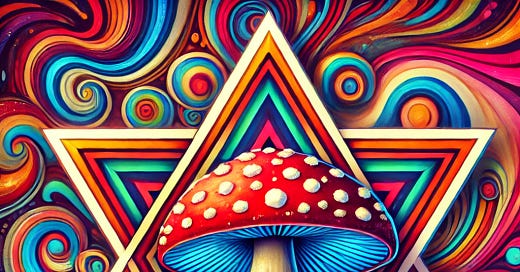


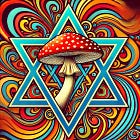
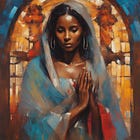

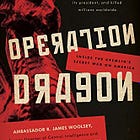
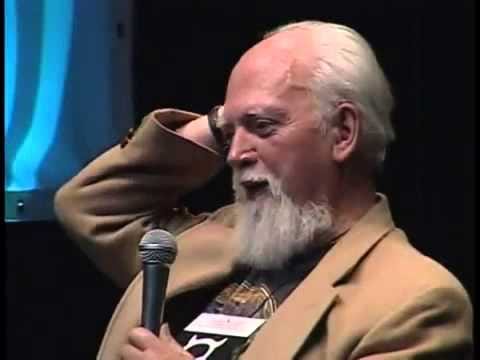

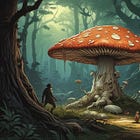
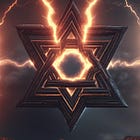

This is an excellent chronology of your intellectual journey, thank you so much for sharing!
That's an interesting list you've compiled. Paglia and Coulter I already revere (Paglia more so, however).